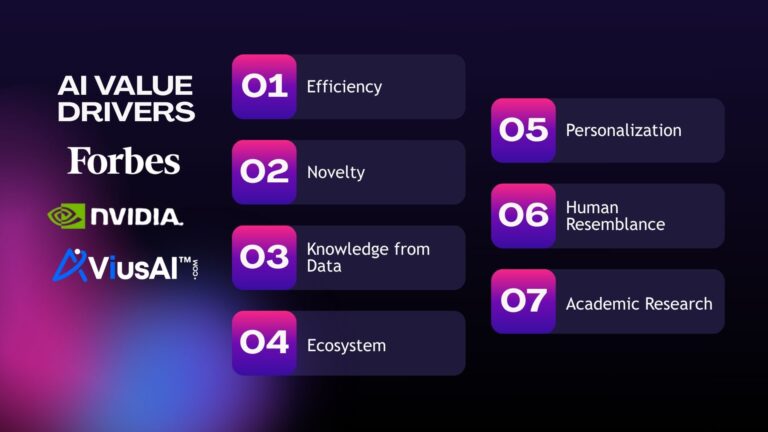The Rising Threat of Robocalls in Business Communication
The Robocall Epidemic Smart AI Solution. In today’s business landscape, effective communication is essential – but it’s increasingly under attack from an expensive and disruptive challenge: the robocall epidemic. What once seemed like a minor annoyance has grown into a serious business problem, draining time, damaging customer trust, and exposing companies and their clients to data security risks.
Without the right solution, robocalls are costing organizations more than just resources – they’re undermining the foundation of reliable business communication. For businesses, distinguishing legitimate customer inquiries from a relentless barrage of unsolicited sales pitches and outright scams has become a critical challenge.
This isn’t just about personal inconvenience; it’s a systemic problem that impacts operational efficiency, employee productivity, and even a company’s financial security.
Unsolicited robocalls promoting products or services are, in fact, illegal unless you’ve provided explicit written consent to receive them. This legal standard underscores the severity of the problem and the imperative for businesses to adopt advanced solutions to protect their communication channels.
The Pervasive Threat of Robocalls to Businesses
Robocalls and robotexts are defined as pre-recorded messages delivered by autodialer software to your phone. While some may originate from legitimate companies or organizations with whom you have an existing relationship, many come illegally from scammers or telemarketers.
For businesses, this distinction is vital. Every ring of a phone could be a potential customer, a critical supplier, or an essential service provider – or it could be a fraudulent attempt to defraud the company or its employees.
The impact on businesses is multifaceted:
- Wasted Time and Resources: Every minute an employee spends answering or dealing with an unwanted robocall is a minute taken away from productive work. This cumulative loss of time can translate into significant operational inefficiency and financial drains for businesses of all sizes.
- Disruption to Customer Service: A busy phone line due to robocalls means legitimate customer calls may go unanswered, be delayed, or even be diverted to voicemail. This directly impacts customer satisfaction and can harm a company’s reputation.
- Security Risks: Many robocalls are not just bothersome sales pitches; they are sophisticated phone scams designed to extract money or sensitive information. Employees, especially those answering phones, can inadvertently become targets for identity theft or corporate espionage if they are not equipped to recognize and handle these deceptive calls. Scammers are adept at using various tactics, from acting friendly and helpful to threatening or trying to scare you, all to get your money or personal information.
- Legal Compliance: Businesses themselves must be aware of the legality surrounding robocalls. As the sources indicate, live sales calls from companies you haven’t done business with before are illegal if you’re on the National Do Not Call Registry, and companies selling something via robocall need written permission to call you. This means businesses need to ensure their own outbound communication practices are compliant while simultaneously defending against illicit inbound calls.
The Stealth and Sophistication of Robocall Phone Scams
The core problem for businesses is that phone scams are not always easy to spot, and they can be incredibly convincing. Scammers have devised countless ways to cheat you out of your time and money over the phone. Understanding the common angles they employ is crucial for any business seeking to protect itself and its employees.
Here’s how to recognize a phone scam, based on common characteristics shared by fraudulent callers:
- No Prize for Payment: If a caller claims you’ve won a lottery or were “selected” for an offer but demand payment to receive the prize, it’s a scam.
- No Immediate Arrest or Threats: Real law enforcement or federal agencies will not call and threaten you with arrest, fines, or deportation if you don’t pay a debt right away. Scammers use intimidation to pressure you into paying.
- No Pressure to Decide Now: Honest businesses will typically give you time to consider an offer and provide written information before you commit. Scammers often create a sense of urgency to prevent you from thinking or doing research.
- Specific Payment Demands: A major red flag is when a caller insists you pay in a way that makes it difficult to get your money back, such as by wire transfer, gift card, cryptocurrency, or payment app.
- Government Agencies Won’t Ask for Sensitive Information Out of the Blue: No government agency will call you unexpectedly and ask for sensitive details like your Social Security number. They are lying if they claim to be from agencies like the Social Security Administration or IRS and request such information.
- Illegality of Calls: If you are receiving robocalls from a company selling something without your written permission, or live sales calls from companies you haven’t done business with after being on the National Do Not Call Registry, these calls are illegal. If someone is already breaking the law by calling you, the content of their call is likely a scam.
Common phone scam angles frequently leveraged against unsuspecting individuals (and by extension, businesses and their employees) include:
- Impersonator Scams: Scammers pretend to be trusted entities like government agencies (FBI, IRS, sheriff’s office), family members, love interests, or even a business you recognize claiming computer problems. They can even spoof caller ID to display a fake name or number, making it appear legitimate.
- Debt Relief and Credit Repair Scams: Promises to lower credit card interest rates, fix credit, or forgive student loans for an upfront fee are often fraudulent. These can lead to losing money and damaging credit.
- Business and Investment Scams: Calls promising help to start a business, offer business coaching, or guarantee large profits from investments (e.g., cryptocurrency) should be met with skepticism. It’s crucial to check investment opportunities with your state securities regulator.
- Charity Scams: Posing as real charities, scammers solicit donations for various causes, often during times of disaster. Always ask how much of your donation goes directly to the charity’s mission and never feel pressured to give immediately over the phone.
- Extended Car Warranties: Scammers pressure individuals to buy overpriced or worthless service contracts or “extended warranties”. It’s advised never to buy such contracts on the spot and to research the company thoroughly.
- “Free” Trials: Callers may offer a free trial but then sign you up for products you’re billed for monthly until cancellation. Always understand what happens after the trial and monitor billing statements for unexpected charges.
- Loan Scams: These include advance fee loan scams where loans or credit cards are guaranteed for an upfront fee. Honest lenders do not make such guarantees.
- Prize and Lottery Scams: Callers claim you’ve won a prize but demand payment for taxes, registration, or shipping fees. After payment, there is no prize.
- Travel and Timeshare Scams: Promises of free or low-cost vacations or guaranteed timeshare sales for an upfront fee often lead to no vacation or no sale.
For businesses, being aware of these scam tactics and educating employees is paramount to prevent financial losses and protect sensitive company information.
Traditional Robocall Defenses and Their Limitations
Historically, individuals and businesses have relied on a few key strategies to combat unwanted calls:
- The National Do Not Call Registry: This registry is designed to reduce the number of telemarketing calls you receive. You can register your phone number online at DoNotCall.gov or by phone at 1-888-382-1222 (TTY: 1-866-290-4236).
- Limitations: While effective against most legitimate companies, the registry will not stop scammers. Furthermore, you will still receive calls from charities and companies with whom you have an existing business relationship. If you’re still receiving unwanted calls from legitimate companies after 31 days of being on the registry, you should file a complaint online or by phone at 1-888-382-1222.
- Call Blocking or Labeling: This is considered the best defense against unwanted calls, especially since scammers often disregard the Do Not Call Registry. Various technologies exist depending on the phone type (cell phone, landline, VoIP). Individuals can check with their phone carriers or look for call-blocking apps.
- Limitations: While effective for known numbers, scammers can use “spoofing” to make any name or number appear on caller ID, making it difficult to block all unwanted calls definitively. What looks like a local number or a government agency could be a scammer calling from anywhere.
- Hanging Up: The simplest advice is often the most effective: hang up on robocalls. Do not press any numbers to speak to an operator or remove yourself from a list, as this can often lead to even more robocalls.
While these methods provide a baseline defense, they are often reactive and require constant vigilance. For businesses handling a high volume of inbound calls, these manual defenses are insufficient to tackle the massive business issue posed by robocalls while also ensuring crucial customer communications are not interrupted.
The Need for Advanced Business Phone Solutions
The traditional methods fall short in a business environment where every inbound call could be a critical interaction. Businesses cannot afford to miss calls from customers, sales leads, partners, or essential service providers because their lines are jammed with robocalls or because employees are busy screening calls manually. There’s a clear need for a proactive, intelligent solution that can:
- Automatically distinguish between legitimate and illicit calls.
- Filter out unwanted robocalls and spam without human intervention.
- Ensure that genuine customer and business-critical calls are processed efficiently.
- Free up employees to focus on core business activities rather than dealing with telemarketers and scammers.
This is where advanced, agentic AI phone solutions emerge as a vital tool in the modern business arsenal.

Introducing Avius AI: A Smart Agentic Robocall Solution for Businesses
Addressing the core challenge of distinguishing legitimate calls from unwanted ones, Avius AI is a Smart Agentic AI business phone solution. This innovative technology is designed specifically to handle the influx of phone calls that businesses receive, providing a robust defense against the robocall epidemic.
The key benefit highlighted is that Avius AI processes every inbound phone call. This comprehensive approach means that it doesn’t just block a few obvious spam numbers; instead, it intelligently manages all incoming communications. The “agentic” nature implies that this AI solution can act autonomously, making decisions about how to handle calls based on sophisticated algorithms and real-time analysis.
Crucially, robocallers hate it. This statement signifies Avius AI’s effectiveness in thwarting the primary perpetrators of unwanted and illegal robocalls. By making it difficult or impossible for robocallers to connect or carry out their intentions, Avius AI disincentivizes them from targeting businesses that deploy such a solution. This translates directly into fewer interruptions, less wasted time, and a cleaner communication channel for the business.
For a business, “processing every inbound phone call” while being detested by robocallers means that Avius AI effectively acts as a highly intelligent gatekeeper. It allows businesses to:
- Prioritize Legitimate Calls: The AI’s ability to “process every inbound phone call” suggests it can discern the nature of a call, directing legitimate customer inquiries, sales leads, or critical business communications to the appropriate channels or personnel without delay. This ensures that businesses can maintain high levels of customer service and capitalize on opportunities.
- Eliminate Unwanted Distractions: By identifying and neutralizing robocalls, Avius AI liberates employees from the burden of screening calls, hanging up on telemarketers, or falling victim to sophisticated scams. This significantly boosts productivity and allows teams to concentrate on strategic tasks.
- Enhance Security: By filtering out known scam calls and suspicious patterns, Avius AI adds a layer of defense against phishing attempts, social engineering, and other fraudulent activities that often originate via phone calls. This protects both company assets and sensitive information.
- Improve Operational Efficiency: Automation of call handling, particularly the weeding out of unwanted calls, streamlines communication workflows. This leads to a more efficient and less frustrating experience for both employees and legitimate callers.
In essence, Avius AI moves beyond simple call blocking. Its “smart agentic AI” capabilities imply a dynamic, learning system that adapts to new robocall tactics, ensuring continuous protection. It processes all calls, ensuring that the calls businesses want and need – from customers, partners, and genuine inquiries – are seamlessly connected, while the calls they despise – from robocallers – are effectively neutralized.
Empowering Businesses: Beyond Blocking, Towards Seamless Communication
For any business, the goal isn’t just to stop bad calls; it’s to facilitate good ones. This is where agentic AI solutions like Avius AI shine. By automatically filtering out the noise, businesses can ensure that their phone lines remain open and accessible for meaningful interactions.
- Improved Customer Experience: Customers calling a business want to connect quickly and efficiently. By reducing the volume of robocalls, businesses can reduce hold times, ensure calls are routed correctly, and provide a smoother, more professional experience.
- Employee Focus and Morale: Constantly fielding unwanted calls is demoralizing and distracting. By offloading this burden to an AI solution, employees can focus on their core responsibilities, leading to increased job satisfaction and productivity.
- Data and Analytics (Inferred Capability): Avius AI’s “Agentic AI” solution that “processes every inbound phone call” would generate valuable data on call patterns, identified threats, and legitimate call volumes. This data could inform business strategies, resource allocation, and further refine communication security.
- Scalability: As a business grows, so does its call volume and exposure to robocalls. An AI solution can scale efficiently, handling increasing numbers of calls without requiring proportionate increases in human resources dedicated to call screening.
What to Do If Targeted: Reporting and Recovery
Without an advanced solution, vigilance remains crucial. Businesses and individuals should be aware of how to report unwanted calls and what steps to take if they’ve been impacted by a scam.
Reporting Unwanted Calls and Scams:
- Report to the Federal Trade Commission (FTC): The FTC is a primary resource for complaining about phone and text scams, robocalls, and telemarketers.
- If you’ve lost money to a phone scam or have information about the company or scammer, report it at ReportFraud.ftc.gov.
- If you didn’t lose money but want to report a call, use the streamlined reporting form at DoNotCall.gov.
- When reporting, provide as much detail as possible: the number that received the call, the number on your caller ID, any number they told you to call back, and the exact date and time of the call. This information helps the FTC and its law enforcement partners track down scammers. The FTC also publishes reported phone numbers to help call-blocking and labeling solutions.
- USAGov Complaints: The official USAGov website (which can be identified by its .gov domain and HTTPS security) offers a comprehensive complaint section. You can complain about telemarketer and scam calls, consumer product and service issues, online purchases, and more. You can call USAGov at 1-844-USAGOV1 for government-related questions and to find answers or where to find them.
What to Do If You’ve Already Paid a Scammer or Shared Information:
Scammers often demand payment methods that are hard to trace, such as gift cards, cryptocurrency, payment apps, or wire transfers. If you’ve paid via these methods, act quickly:
- Credit Card or Debit Card: Contact the issuing company or bank, report the fraudulent charge, and ask them to reverse the transaction.
- Unauthorized Bank Transfer: Contact your bank immediately, report the unauthorized debit, and request a reversal.
- Gift Card: Contact the company that issued the gift card (e.g., specific store brand) and explain it was used in a scam. Request your money back and keep a copy of the card and receipt.
- Wire Transfer (Western Union, MoneyGram, Ria, or Bank): Immediately contact the wire transfer company or your bank, report the fraudulent transfer, and ask them to reverse it. Specific contacts are provided for major wire services.
- Payment App: Report the fraudulent transaction to the payment app company and ask for a reversal. If linked to a credit or debit card, also report to your card company or bank.
- Cryptocurrency: Contact the company you used to send the money and report the fraudulent transaction, asking for a reversal.
- Cash (Mailed): If sent by U.S. mail, contact the U.S. Postal Inspection Service at 877-876-2455 to attempt an intercept. For other delivery services, contact them as soon as possible.
If you’ve given a scammer personal information:
- Social Security Number: Visit IdentityTheft.gov for steps to take, including credit monitoring.
- Username and Password: Create a new, strong password immediately. Change it everywhere else you’ve used that same password.
Be wary of “fake refund scams” where someone calls offering to help recover lost money, but then demands more money or personal information.

Understanding and Preventing Phone Hacking
Your smartphone is a digital treasure chest, filled with personal data and crucial for banking, shopping, and managing sensitive financial matters. This makes it a prime target for identity thieves. Understanding phone hacking and how to prevent it is essential for safeguarding your digital life.
If you rely on your mobile phone for business, you should understand what is at risk.
What is Phone Hacking? Phone hacking involves unauthorized third-party access to your smartphone and its data. This isn’t a single technique but a range of cybercrimes, including exploiting software vulnerabilities, intercepting data on unsecured networks, or installing tracking software via physical access.
Common Ways Hackers Attack: Hackers use various methods to compromise devices:
- Hacking Software: Malicious apps, fake websites, or phishing attacks can install software that performs keylogging (snooping your typing/talking) or acts as Trojans (malware disguised to extract data).
- Phishing Attacks: Hackers impersonate trusted entities in emails, texts, or messages to trick you into revealing personal info or installing malware.
- Bluetooth Hacking: Hackers search for vulnerable devices with open Bluetooth connections within 30 feet to access data.
- SIM Card Swapping: A hacker impersonates you to your phone provider to obtain a replacement SIM, effectively stealing your phone number and control over calls/messages.
- Vishing (Voice Phishing): Phone calls used for social engineering, where hackers impersonate banks or tech support to trick you into revealing sensitive data or installing malicious apps.
Signs Your Phone Might Be Hacked: Early detection can prevent significant trouble. Look for these red flags:
- Battery drains unusually fast or the phone gets persistently hot.
- Unexpected spikes in mobile data usage.
- Apps quit suddenly, the phone shuts off/on, or runs unusually slow.
- Unrecognized data/text charges or apps you don’t remember installing.
What to Do If Your Phone is Hacked: Act quickly to regain control and protect information:
- Disconnect immediately: Turn on Airplane Mode.
- Run an antivirus scan: Use a reputable mobile security app.
- Review and remove suspicious apps: Delete unknown apps and revoke intrusive permissions.
- Change your passwords: On a separate device, update passwords for critical accounts.
- Perform a factory reset: For persistent infections (with a clean backup).
- Monitor your accounts: Watch for any unauthorized activity.
Top Tips to Prevent Phone Hacking: Your proactive security habits are your strongest defense:
- Use business phone solutions from Avius AI business communications ecosystem like a UCaaS mobile phone solution along with their Conversational Smart AI Voice Solution.
- Keep your phone’s OS and apps updated.
- Use a Virtual Private Network (VPN) on public Wi-Fi.
- Employ a password manager for strong, unique passwords.
- Avoid public charging stations.
- Keep your eyes on your phone, use PIN/password, and enable device tracking.
- Encrypt your phone and lock your SIM card.
- Turn off Wi-Fi, Location, and Bluetooth when not in use.
- Avoid unvetted third-party app stores.
Ultimately, your digital hygiene—using strong passwords, avoiding suspicious links, and vetting apps—is the most important factor in staying safe. Stay vigilant and informed to use your mobile device with confidence.
Conclusion
The persistent barrage of robocalls, and simply using your mobile phone for business, represents a massive business issue, threatening efficiency, security, and customer trust. From the illegal unsolicited sales pitches that violate privacy laws to the sophisticated scams that can wipe out savings or compromise sensitive data, the challenge is undeniable.
While traditional defenses like the National Do Not Call Registry and basic call blocking offer some protection, they are often insufficient for the dynamic and complex communication needs of modern businesses.
The emergence of smart agentic AI phone solutions like Avius AI marks a significant leap forward. By comprehensively processing every inbound phone call and earning the disdain of robocallers, Avius AI provides businesses with a powerful, automated shield. It ensures that crucial customer and legitimate business calls are handled seamlessly, while the disruptive and dangerous noise of unwanted calls is effectively silenced.
In an era where communication is paramount, investing in intelligent solutions is no longer a luxury but a strategic imperative for businesses aiming to thrive and secure their operations.
Sources:
Federal Trade Commission: Phone Scams
Federal Communications Commission: Robocalls and robotexts
Avius AI: Features and Solution
McAfee: How do hackers hack phones.







